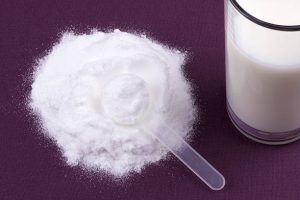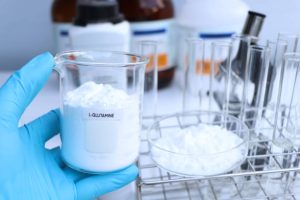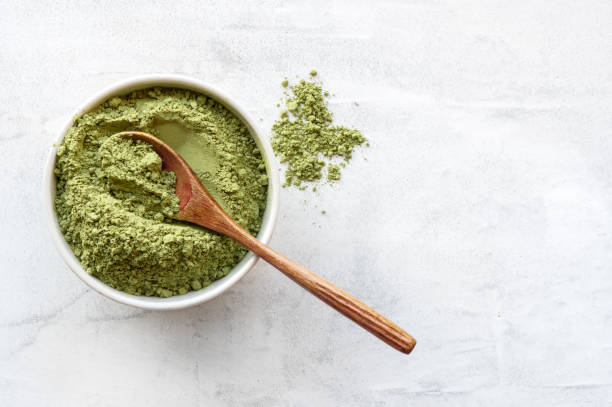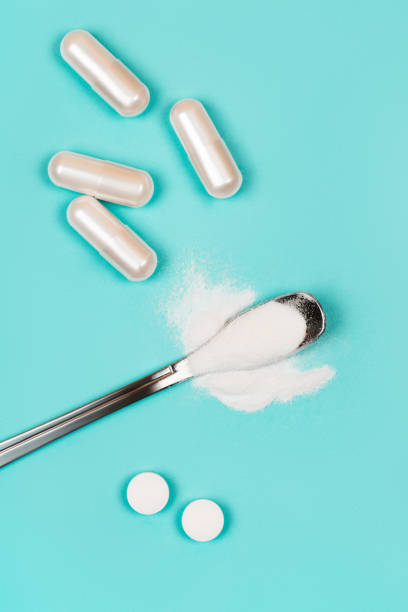Czy L-glutamina to to samo co L-glutation?
Co to jest L-glutamina?
L-glutamina jest jednym z najbardziej powszechnie dostępnych aminokwasów w organizmie człowieka. Chociaż jest to aminokwas nieessentialny, w okresach stresu, infekcji czy urazów staje się tzw. „warunkowo essentialny”. Wytwarzany jest w organizmie z glutamatu i amoniaku i jest szeroko dostępny zarówno w krwi, jak i w tkankach mięśniowych.
L-glutamina jest bardzo ważna dla wielu normalnych funkcji organizmu. Pomaga utrzymać zdrowie jelit, wspiera wzrost mięśni, wzmacnia układ odpornościowy, a także utrzymuje równowagę kwasowo-zasadową i azotową w organizmie. Metabolizm człowieka opiera się na niej.
Co to jest L-glutation?
L-glutation (GSH) składa się z trzech aminokwasów: glutamatu, cysteiny i glicyny. Wewnątrz komórek działa jako główny antyoksydant, ważny dla neutralizacji wolnych rodników, utrzymania zdrowych grup białkowych oraz wspomagania detoksykacji wątroby i pracy układu odpornościowego.

Główne różnice między L-glutaminą a L-glutationem
| Cecha | L-glutamina | L-glutation (GSH) |
|---|---|---|
| Struktura molekularna | Pojedynczy aminokwas | Tripeptyd |
| Skład | Glutamina (z glutamatu) | Glutamat + cysteina + glicyna |
| Główne funkcje | Metabolizm azotu, energia, naprawa jelit i odporność | Antyoksydacja, detoksykacja, sygnalizacja |
| Rola antyoksydacyjna | Nie (pośredni prekursor) | Tak (główny antyoksydant) |
| Ścieżka biosyntezy | Endogenny z glutamatu | Dwustopniowa z glutamatu, cysteiny, glicyny |
Fizjologiczne role i metabolizm L-glutaminy
Metabolizm azotu i równowaga aminokwasów
L-glutamina jest głównym nośnikiem azotu w organizmie. Służy jako „przewoźnik azotu” z mięśni do wątroby, nerek lub innych organów. Bierze udział w cyklu mocznikowym w celu nowej syntezie aminokwasów.
Podczas stresu (np. poparzenia, infekcje, operacje) poziom L-glutaminy szybko spada, co czyni ją warunkowo essentialnym aminokwasem, który może być uzupełniany.
Ochrona błon śluzowych i regeneracja nabłonka
L-glutamina stanowi ważny źródło energii dla komórek nabłonka jelitowego. Sprzyja ekspresji białek szczelnych połączeń i zwalcza przepuszczalność jelit.
Wsparcie układu odpornościowego
Limfocyty i makrofagi wykorzystują duże ilości L-glutaminy. Wspomaga ich aktywację, proliferację i syntezę DNA/RNA.
Rola prekursora antyoksydacyjnego
Chociaż sama nie jest antyoksydantem, L-glutamina jest prekursorem glutamatu, niezbędnego do syntezy glutationu (GSH).
Wpływ na metabolizm glukozy i wrażliwość na insulinę
L-glutamina może poprawić oporność na insulinę i regulować sygnały mTOR, przyczyniając się do syntezy mięśni i równowagi metabolicznej.

Główne funkcje i mechanizmy L-glutationu
Neutralizacja wolnych rodników i równowaga redoks
GSH neutralizuje reaktywne formy tlenu, wspiera aktywność glutationperoksydazy i chroni grupy tiolowe białek.
Detoksykacja
GSH wiąże toksyny za pomocą GST, ułatwiając ich rozpuszczalność w wodzie i wydalanie. Jest niezbędny w detoksykacji wątroby i w klinicznych antidotach.
Równowaga immunologiczna i drogi komórkowe
GSH moduluje odpowiedzi immunologiczne, wspiera aktywację limfocytów T i wpływa na sygnały NF-κB. Niski poziom GSH wiąże się z osłabieniem odporności i słabą odpowiedzią na leki.
Ścieżka produkcji i regeneracji
Krok 1: Glutamat + cysteina → γ-glutamilcysteina (limitujący tempo)
Krok 2: γ-glutamilcysteina + glicyna → GSH
Utleniony GSSG zostaje odnowiony do GSH za pomocą glutationreduktazy i NADPH.
Relacja: Koegzystencja, ale oddzielnie
L-glutamina jako prekursor wspierający pracę
L-glutamina nie jest bezpośrednio przetwarzana na GSH, ale wspiera syntezę GSH dostarczając glutamatu.
Funkcje są różne; nie mogą się zastępować
L-glutamina i GSH mają różne struktury molekularne i role fizjologiczne i nie są zamienne.
Strategie kliniczne i żywieniowe różnią się
- W celu zdrowia jelit lub wsparcia odporności, preferuje się L-glutaminę.
- W celu detoksykacji lub potrzeb antyoksydacyjnych, GSH lub NAC są skuteczniejsze.
Porównanie zastosowań w dietetyce klinicznej i sportowej
Wsparcie dietetyczne w klinice
L-glutamina: OIT, chirurgia, zaburzenia jelit, onkologia.
L-glutation: Detoksykacja wątroby, starzenie się, neurodegeneracja, terapia antyoksydacyjna.
Dietetyka sportowa i regeneracja
L‑Glutamina: Wspomaga regenerację, integralność jelit oraz odporność.
GSH: Słaba biodostępność doustna; preferowana jest NAC.
Suplementacja: Bezpieczeństwo i wydajność
Dawkowanie L‑Glutaminy
5–30 g/dzień w podzielonych dawkach. Ostrożność u osób z problemami nerkowymi lub wątrobowymi.
Suplementacja L‑Glutatyną
Niska biodostępność doustna. Preferowane są drogi NAC, liposomalne lub iniekcyjne.
Rekomendacje zgodne z demografią
| Potrzeba / Demografia | Preferowana L‑Glutamina | Preferowana GSH / Prekursor |
|---|---|---|
| Odbudowa jelit | ✔️ | ❌ |
| Wsparcie odpornościowe | ✔️ | ◯ |
| Powrót po operacji/urazie | ✔️ | ❌ |
| Antyoksydacyjne/antystarzeniowe | ◯ | ✔️ |
| Niedoczynność wątroby | ❌ | ✔️ |
| Neuroprotekcja | ◯ | ✔️ |
| Wybielanie skóry/antystarzeniowe | ❌ | ✔️ |
Popularne błędne przekonania
- „L‑Gln jest antyoksydantem.” → ❌Jest prekursorem, a nie aktywnym antyoksydantem.
- „Im więcej GSH, tym lepiej.” → ❌GSH doustny ma słabą biodostępność.
- „Są wzajemnie zamienialne.” → ❌Spełniają bardzo różne zadania.
Przyszłe trendy
- Suplementy mieszane: L‑Glutamina + NAC + Witamina C.
- Nano-przekazywanie GSH w celu poprawy biodostępności.
- Badania dotyczące osi jelito-mózg z udziałem L‑Gln + probiotyków.
Mimo podobnych nazw, L‑Glutamina i L‑Glutatyna spełniają bardzo różne funkcje biologiczne. L‑Glutamina wspiera zdrowie jelit, odporność i regenerację mięśni, podczas gdy GSH jest bezpośrednim antyoksydantem i środkiem detoksykującym. Dla optymalnego zdrowia te dwa składniki są uzupełniające, ale nie są wzajemnie zamienialne.



